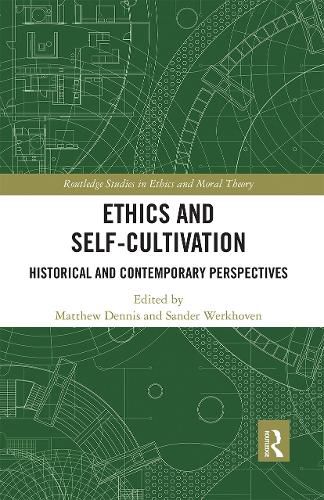Readings Newsletter
Become a Readings Member to make your shopping experience even easier.
Sign in or sign up for free!
You’re not far away from qualifying for FREE standard shipping within Australia
You’ve qualified for FREE standard shipping within Australia
The cart is loading…






The aim of Ethics and Self-Cultivation is to establish and explore a new ‘cultivation of the self’ strand within contemporary moral philosophy. Although the revival of virtue ethics has helped reintroduce the eudaimonic tradition into mainstream philosophical debates, it has by and large been a revival of Aristotelian ethics combined with a modern preoccupation with standards for the moral rightness of actions. The essays comprising this volume offer a fresh approach to the eudaimonic tradition: instead of conditions for rightness of actions, it focuses on conceptions of human life that are best for the one living it. The first section of essays looks at the Hellenistic schools and the way they influenced modern thinkers like Spinoza, Kant, Nietzsche, Hadot, and Foucault in their thinking about self-cultivation. The second section offers contemporary perspectives on ethical self-cultivation by drawing on work in moral psychology, epistemology of self-knowledge, philosophy of mind, and meta-ethics.
$9.00 standard shipping within Australia
FREE standard shipping within Australia for orders over $100.00
Express & International shipping calculated at checkout
The aim of Ethics and Self-Cultivation is to establish and explore a new ‘cultivation of the self’ strand within contemporary moral philosophy. Although the revival of virtue ethics has helped reintroduce the eudaimonic tradition into mainstream philosophical debates, it has by and large been a revival of Aristotelian ethics combined with a modern preoccupation with standards for the moral rightness of actions. The essays comprising this volume offer a fresh approach to the eudaimonic tradition: instead of conditions for rightness of actions, it focuses on conceptions of human life that are best for the one living it. The first section of essays looks at the Hellenistic schools and the way they influenced modern thinkers like Spinoza, Kant, Nietzsche, Hadot, and Foucault in their thinking about self-cultivation. The second section offers contemporary perspectives on ethical self-cultivation by drawing on work in moral psychology, epistemology of self-knowledge, philosophy of mind, and meta-ethics.